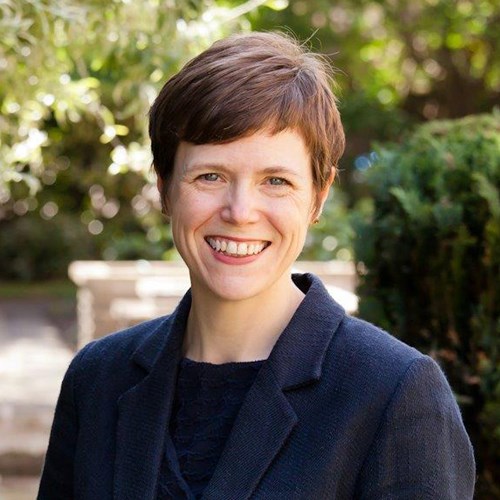Esther Wilson, director of people and place at Viewpoint and chair of the Board at CIH Scotland
From her background in local government both north and south of the border, Esther Wilson has a wealth of experience on which to draw in her current roles at both Viewpoint and CIH Scotland.

Esther Wilson
Esther Wilson is an experienced housing professional who has held broad ranging senior management positions over the last 14 years. She has led and managed teams responsible for the delivery of strategic planning, policy, service development and investment functions, as well as direct operational functions.
With a genuine passion for the sector through her work in local government over the last eighteen years as a strategic planner in housing, Esther has developed local housing strategies and contributory strategies in areas such as housing for older people, fuel poverty and homelessness, as well as developing new affordable housing including East Lothian Council’s new build council housing programme.
Looking back, Esther is only too happy to highlight the women who have been strong leaders in the housing sector.
“The housing sector, from volunteers to paid staff, is exemplified by strong female leaders.”
“Looking at the history of the social housing sector we can see achievements as women innovated and were prepared to make a stand against poverty,” she said. “In Scotland for example, Mary Barbour led months of protest against rent increases in Glasgow in 1915. Octavia Hill initiated the profession of housing management – now known as the Chartered Institute of Housing and Viewpoint, Scotland’s oldest housing association, was founded by women.”
Indeed the influence of women in the sector can be traced as far back as 1865 and 1866 when Octavia Hill first managed two small groups of dilapidated houses in London, thus initiating the profession of housing management. She rented her properties on weekly or short-term tenancies, employing trained female housing managers, who were equipped to deal with repairs, welfare issues and rent accounting, to collect rents in person.
In 1916 women who had trained under her founded the Association of Women Housing Workers. The Association grew and changed its name to the Society of Housing Managers in 1948, which later merged with the Institute of Housing to form the Institute of Housing Managers, now known as the Chartered Institute of Housing.
“Nowadays the housing sector, from volunteers to paid staff, is exemplified by strong female leaders,” Esther adds. “And the sector continues to nurture and embrace women at its core. However more could be done. There are parts of the sector that are more likely to be dominated by men, for example the housing development industry but this is changing. More can be done to support women to access and thrive in this part of the housing sector.”
Having outlined the history of women in social housing, Esther is equally keen to emphasise more recent examples of women pushing the sector forward.
She said: “There are many women getting involved in and leading tenants and residents groups across Scotland, all with the aim of improving where they live and whom we don’t hear about. In terms of the sector in Scotland there are many examples of female leaders - Dorry McLaughlin, Annie Mauger, Dr Mary Taylor, Amanda Britain, Fanchea Kelly, Helen Forsyth, Sally Thomas, Nicola Barclay, Ileen Campbell, Lesley Baird, Kirsty Wells, Elaine Byrne and Julia Fitzpatrick.”
“I strongly believe a culture of diversity has been fostered at CIH Scotland.”
Esther’s own career began her career in housing in Cumbria in 1999, returning to Scotland to take up a post at Clackmannanshire Council before moving to East Lothian Council to become housing strategy manager in 2005. The local authority then appointed her to the role of service manager with responsibility for economic development and strategic investment in 2013 before moving on to Viewpoint where she is director of people and place.
In November 2017 Esther succeeded Amanda Britain as chair of the Board at CIH Scotland having been on the Board since March 2015 and filling the position of vice chair from March 2016.
Like Viewpoint, CIH Scotland has a fantastic record for diversity. Something Esther is keen to continue in her role. In her view, was this culture fostered at CIH Scotland or was it the inevitable consequence of the history of women throughout the social housing sector?
“A bit of both perhaps but I do strongly believe this culture has been fostered at CIH Scotland.”
And her own career highlights?
“Working in a strategic housing role at South Lakeland District Council, incorporating parts of both the Lake District and Yorkshire Dales National Park. Overseeing East Lothian Council’s new build housing programme which restarted as I arrived at the organisation and facilitating the delivery of affordable housing with partners, levering in significant investment. Working with communities in East Lothian to masterplan the future use of a former power station site. Moving from a career exclusively in local government to the housing association sector. Becoming chair of CIH Scotland Board.”








